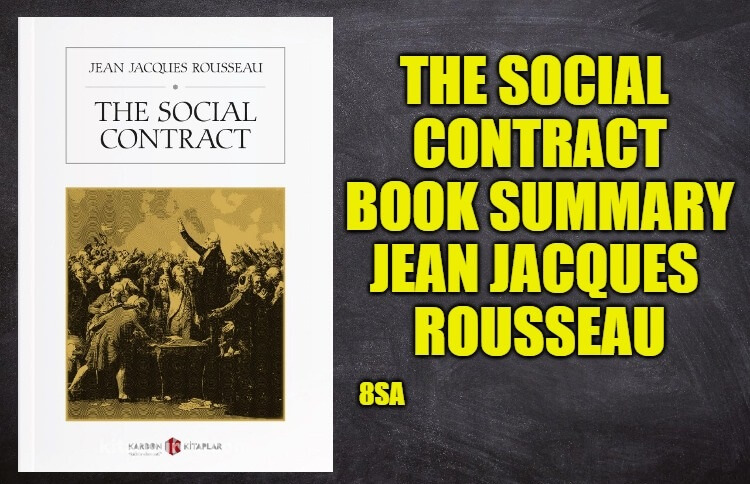What is the summary of the book The Social Contract written by Jean Jacques Rousseau? Information about the summary, review and analysis of The Social Contract.

The Social Contract
The Social Contract is a book written by French philosopher Jean-Jacques Rousseau, first published in 1762. It is a seminal work in political philosophy, exploring the nature of the social contract between individuals and the state.
Rousseau’s central thesis in the book is that individuals in a state of nature are free and equal, but that this state is not desirable because it is characterized by conflict and insecurity. Therefore, individuals enter into a social contract with one another in which they surrender their individual rights to a collective authority, usually the state, in exchange for protection and the common good.
Rousseau argues that the legitimacy of the state rests on the general will of the people, which is the collective desire of the citizens for the common good. He believes that the general will is not necessarily the same as the will of the majority, but rather is the will of the community as a whole, which is always focused on the common good.
The Social Contract is notable for its influence on modern political philosophy and for its contribution to the development of the idea of democracy. Rousseau’s ideas about the social contract, popular sovereignty, and the general will have been influential in shaping political thought and government systems around the world.
Book Summary
The Social Contract is a book written by Jean-Jacques Rousseau, a French philosopher and writer, and published in 1762. It is one of the most important works in political philosophy and has influenced the development of democratic and republican government systems worldwide.
The book explores the idea of the social contract, which is the agreement between individuals and society that establishes the legitimacy of government. Rousseau argues that people are naturally free and equal, but that the state of nature is not desirable because it is characterized by conflict and insecurity. Therefore, individuals enter into a social contract with one another in which they surrender their individual rights to a collective authority, usually the state, in exchange for protection and the common good.
According to Rousseau, the social contract is the foundation of legitimate government. He believes that the legitimacy of the state rests on the general will of the people, which is the collective desire of the citizens for the common good. The general will is not necessarily the same as the will of the majority, but rather is the will of the community as a whole, which is always focused on the common good.
Rousseau also argues that the state should be based on the principle of popular sovereignty, which means that the people as a whole should have ultimate authority over the government. He believes that the government should be accountable to the people and that the people should have the power to remove the government if it fails to act in their best interests.
Another important concept in The Social Contract is the idea of the separation of powers. Rousseau argues that the government should be divided into different branches, each with its own specific powers and responsibilities. This is to prevent any one branch from becoming too powerful and to ensure that the government acts in the interests of the people as a whole.
Rousseau also discusses the concept of civil religion, which he believes is necessary for the functioning of the state. Civil religion is the belief in a higher power or moral code that is necessary for the establishment of a common set of values and beliefs that can hold a society together. According to Rousseau, civil religion should be based on reason and the common good, rather than on any specific religion.
In The Social Contract, Rousseau also discusses the idea of property rights. He argues that property is not a natural right, but rather a social convention that is established by the social contract. Property rights should be regulated by the state to ensure that they do not infringe on the rights of others or harm the common good.
The Social Contract has been influential in shaping political thought and government systems around the world. Its ideas about the social contract, popular sovereignty, and the general will have been instrumental in the development of democratic and republican government systems. The book has also been the subject of intense debate and criticism, with some critics arguing that Rousseau’s ideas are impractical or unworkable in modern societies.